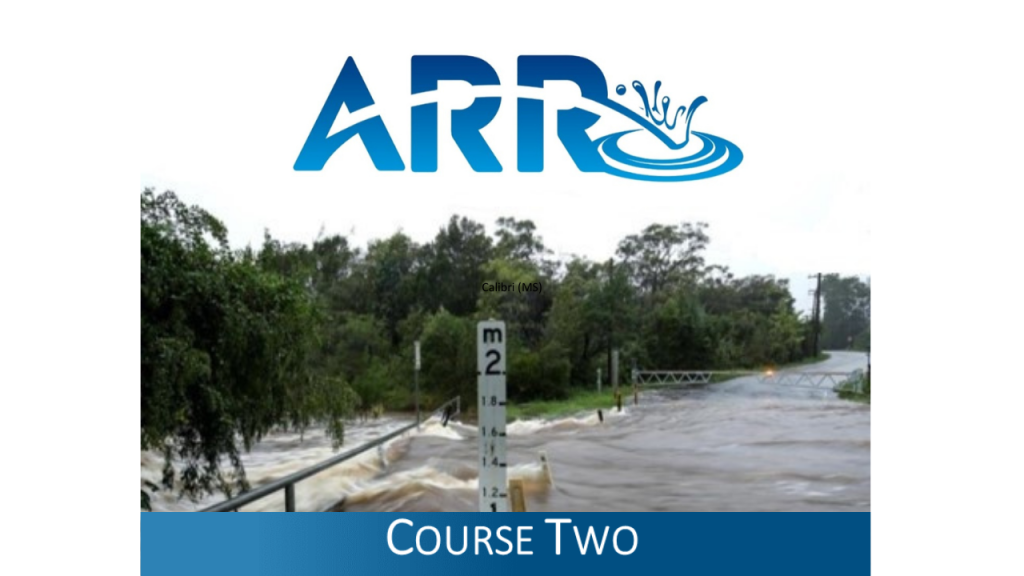Course Overview
Throughout the course attendees will be learn through practical hands-on examples on how to use and apply different rainfall related design inputs, including:
- How to undertake FFA.
- Examples using FLIKE.
- How to include historic events in FFA.
- Use of prior information from RFFE.
- Regional Flood Frequency Estimation.
Learning objectives
- How to undertake FFA.
- Using RFFE website.
- Understanding FLIKE outputs.
Format
- 3-hours of recordings to view as many times as required within the allocated time;
- Ability to ask questions to the presenters at anytime through the learning platform;
- PDF manual of the course. The manual is recommended for ongoing use;
- Any working models/ software’s required for the course are available to be downloaded from the learning platform;
- Homework exercises to practice the course content;
- Pre-reading and viewing materials;
Requirements
- A good internet connection and
- To provide the best desired learning outcomes, setup in a quiet space with dual monitors (i.e. one screen with the on-demand recording and the other with the software/exercise that attendees can work on simultaneously).
Outcome
- On completion of the course attendees will be issued with a Certificate of Completion.
- Earn 6+ CPD points for your professional development (i.e. with Engineers Australia).
Background
ARR 4th edition is a major update to guidelines, the first in 30 years. This edition comprises The Guidelines and tools like ARR Data hub and software for easier access to relevant information.
With national applicability, balancing the varied climates of Australia, it is a pivotal framework for the safety and sustainability of Australian infrastructure, communities, and the environment.
Originally published in 1958 by Engineers Australia and periodically revised, ARR 4th edition was released in 2019 with the support of the Commonwealth Government of Australia and Geoscience Australia. This edition of the guidelines includes new methods for estimating rainfall, revised approaches to hydrologic and hydraulic modelling, and incorporating climate change projects into flood estimation.
The information and the approaches presented in Australian Rainfall and Runoff Guidelines 2019 are essential for policy decisions and projects involving:
- infrastructure such as roads, rail, airports, bridges, dams, stormwater and sewer systems;
- town planning;
- mining;
- developing flood management plans for urban and rural communities;
- flood warnings and flood emergency management;
- operation of regulated river systems; and
- estimation of extreme flood levels.
How it works
AWS has designed the ARR On-demand Training Series for professionals looking to gain a solid grasp of the ARR principles to enable them to improve the accuracy and reliability of flood assessments. Once you register, you’ll receive immediate access to all eight (8) courses with unlimited access for 4 months. Learn at your own pace, through a combination of video recordings, practical exercises, and real-world case studies.
This 8-course training series is designed as a scaffolding approach, where each 3-hour course builds on the previous one, gradually developing your skills to fully understand all aspects of the ARR guidelines and how to use the Data Hub and software.
The series begins with two free webinars, “ARR Essentials” and “What’s new with ARR”, which introduce the fundamentals of ARR (including the data hub and software), its core concepts, key topics and approaches and also Book 1 of the Guideline- Scope and Philosophy.
As you progress through the course content, you can contact our expert presenters at any time via the learning platform. Track your progress, revisit materials anytime, and complete the courses on your schedule.
Register for the ARR Training Series and receive a $400 discount and unlimited access for 4 months.
Refund Policy
Frequently Asked Questions (FAQ)





